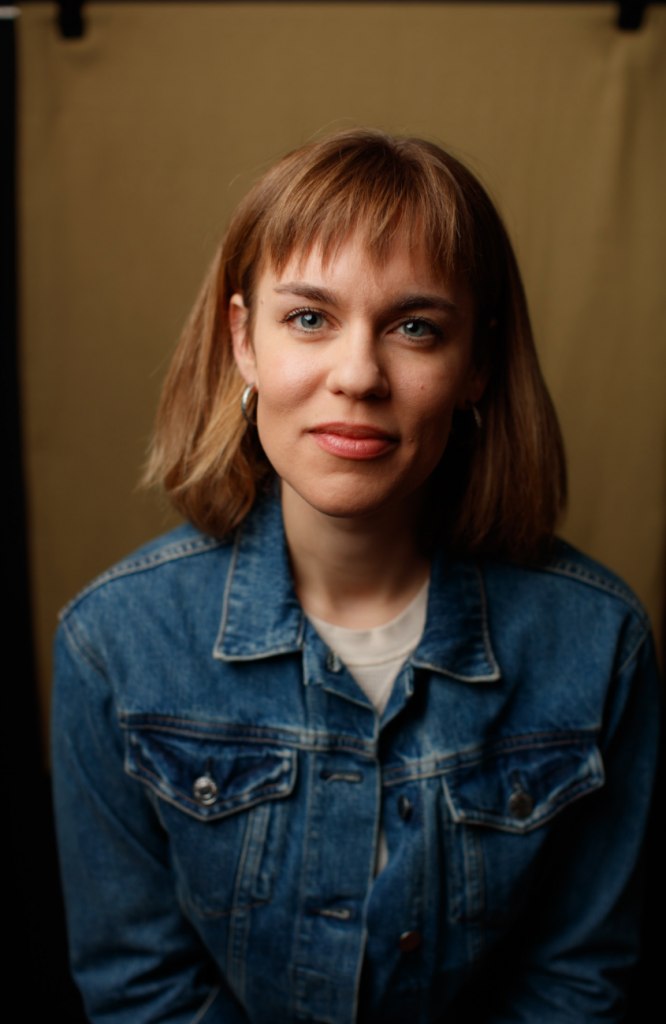
Catching Up with 2022 Nonfiction Prize Winner Courtney Kersten
January 10, 2023 | Awards, blog, interviews


Courtey Kersten is the author of Daughter in Retrograde: A Memoir (University of Wisconsin Press 2018). Her essays have been published in River Teeth, Hotel Amerika, and Prairie Schooner, among other journals, and have been awarded the Bellingham Review’s Annie Dillard Award, the Southern Indiana Review’s Mary C. Mohr Award in Creative Nonfiction, and been listed as “notable” in the 2020 and 2021 Best American Essays series. She is an Assistant Professor of English and Creative Writing at Flagler College in St. Augustine, Florida.
CH: What was your main source of inspiration for “Mysteries Already Deciphered?”
CK: As someone interested in nonfictional stories, I find that the questions I encounter in my personal life inevitably influence my writing (as I would imagine many artists and storytellers find… ). I have often found myself and my desire to engage with the psychic word to be both profound on a spiritual level and also laced with complexity when thinking about agency and translating spiritual entities and guidance into language. Who are we giving our power to when we visit psychics? How can psychics empower us? How can they harm us? How do psychics engage in the process of translation? What is lost in such a translation? I wanted to explore such questions through an essay.
CH: What does your revision process look like?
CK: I try to trust in the power of time to reveal what’s calling to be changed, moved, or removed. So, when I finish the first draft, I typically put the manuscript away for a while—sometimes a week, sometimes months. When I return to it, I make whatever changes feel intuitive and do the same thing—put the writing away as long as possible and continue sculpting and refining. Of course, it isn’t easy to do this when you have a deadline. So, in some instances, I can only let the writing sit overnight or maybe even an afternoon, but I believe that time away illuminates what’s calling to be revised.
CH: If you could go back to the beginning of your writing career, what piece of advice would
you give yourself?
CK: Buy reading glasses. Restrain the urge to purchase the cheap chair at the thrift store. Know that your fate will be many trips to the chiropractor. Don’t put the saltshaker so close to your keyboard because, one day, when you are tired and rushing from task to task, you will spill that salt all across your keyboard, and the “f” key will forever not work. Your fishes will become ishes. You will move to Loirda rather than Florida. You will long for that letter—a letter you never thought you’d desire. You will shake your keyboard, trying to budge the unyielding salt crystal. You will develop elaborate ways to type forgetful or forceful without the “F.” Spell check will help you. You will think about forgiveness each time you salt something.
CH: Who are some of the writers who inform the work you do?
CK: Nathalie Léger’s work has influenced my most recent manuscript. Her work contemplates the lives of other women and attempts to chronicle them despite the mysteries she encounters (see Suite for Barbara Loden). I am excited by how she overcomes the obstacles she faces through form and research. Often in my work, I find myself coming up against complications—incomplete data, unwieldy questions—and looking at her work helps me remain open to the possibilities of the imagination and form.
CH: What project are you working on that excite you the most?
CK: I recently finished a manuscript about the late American astrologer Linda Goodman. Goodman brought astrology to mainstream America during the 1960s and 70s with her best-selling guides, but the search for her missing daughter eclipsed her commercial success. In 1973, Goodman’s daughter Sally was found dead. Police declared the death a suicide, but Goodman believed the body was a double, and the CIA had kidnapped Sally. In Goodman’s pursuit of Sally, the press criticized her, often depicting her search as one of irrational denial. Goodman continued her investigation until she died, impoverished, in 1995. My book is a reclamation of her—I want to show what she contributed to American culture and also how her story, one of grief and wanting to reclaim what has been lost, is something not to be ridiculed but a story to be seen as deeply human.
Submissions for the swamp pink Nonfiction Prize open on January 1st and will close January 31st.
Submit your work here.
With a $20 entry fee, writers may submit up to 25 pages of nonfiction. Winners receive $2,000 and publication. All entries will be considered for publication, and more than one story may be entered. Before you submit, please remove your name and any other identifying information from your manuscript. Simultaneous submissions are okay, as long as you contact us should the work be accepted elsewhere.
